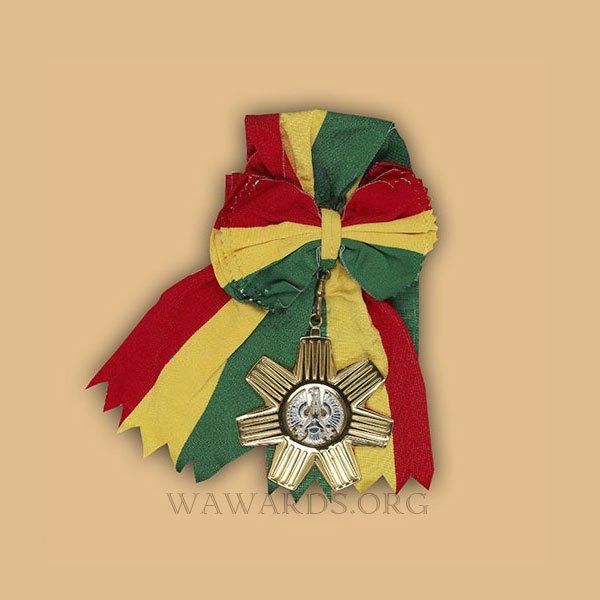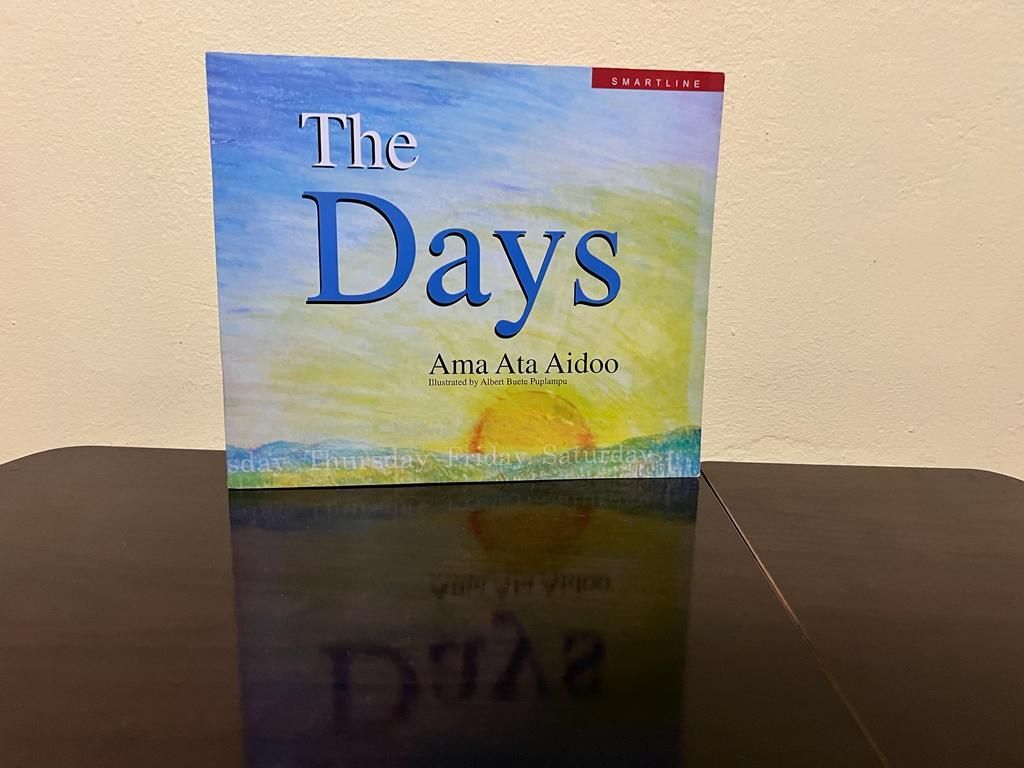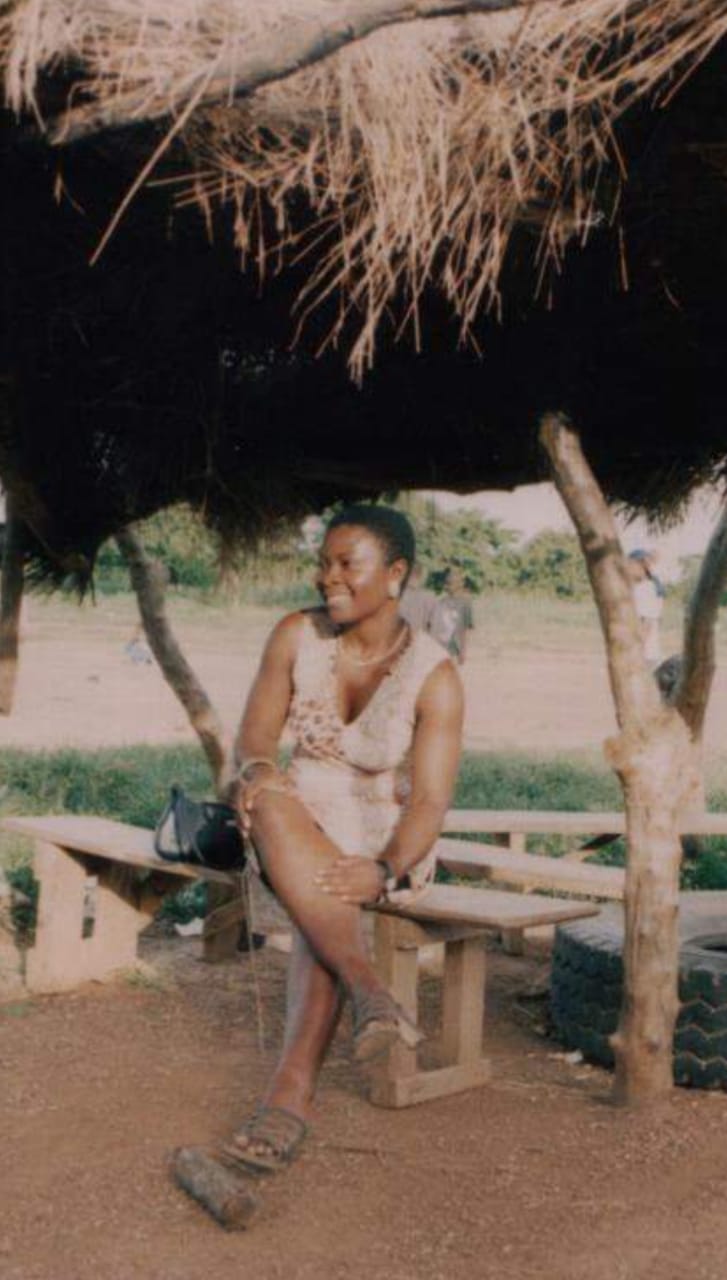Awards have Value
Esi Arhin • October 6, 2020
Check indiscriminate establishments of award schemes

The impact value of awards give grounds for Ghana to pay attention to the institution of award schemes. Measures must be put in place to monitor and evaluate as well as serve as a check and balance for the institution of award schemes to prevent repeated occurrences of fake awards that so many otherwise dignified personalities have fallen prey to in a rather not so honorable manner. That even when an award schemes are found lacking in legitimacy is left unpunished, communicates our seemingly general lack of regard for achievement.
The recent incident of the fake “Global Blueprint Excellence Award” associated with Kofi Annan, tied to the United Nations by one Dr. Kwame Owusu Fordjour gives further credence to the need to have a standard and verifiable process in the institution of award schemes in the country.
Awards have value, good ones. They highlight the celebration of the individual who has excelled in their field of endeavour. Its even better and more so when awards come with rewards, such as cash prizes or other things that have monetary value and can be reinvested.
As a Ghanaian national, the worlds most prestigious awards for me starts with "The Order of The Star" award given for outstanding services to the country, with its tricolor (green, yellow, red) ribbon and a star badge of seven thick points, centred with an eagle and a five points star representing divine guidance and protection, embossed with Electa, Martha, Esther, Ruth and Adah, all heroines from the bible.
As citizens, if we give to our country enough for the state to recognise us with the honour of' The Order of The Star” award, we may well lead our country to greater heights.
Wy has Ghana not celebrated "The Order of the Star award itself in all its prestige over the years?
Why has public not celebrated and given due recognition to those who have been honoured by the state to encourage the citizenry to aspire to winning "The order of the star"?
It is necessary for any entity in business, be it the creative arts, media or any field of endeavour to receive recognition of their services, products and performance and none better than the highest award of the land. When an individual or an organisation's effort is recognized with an award, it enables them to set themselves apart from others, colleagues or competitors. It puts them in the limelight which serves as a strategic position for further growth and advancement. Many potential clients, customers and admirers become aware of the brand, this can again result possibly in the attainment of more opportunities on even bigger platforms for the individual or organisation.
People with honorary doctoral degrees, (a degree bestowed as an honour rather than through the completion of academic achievements), are awarded in recognition of their life experiences and achievements, wear the honour so proudly, perhaps even more so than those who attain a doctoral degree through completion of academic works because of what the honorary award connotes.
In recent times, honorary doctoral degrees have become a near fashionable trend and certain personalities have sought after them in order to acquire recognition in their field of endeavour and also raise their status in society.
Thus, bogus and fraudulent individuals and institutions have taken advantage of the scramble for honorary degrees to achieve recognition for themselves so have also sought to bestow honorary degrees on certain personalities whom such institutions deem notable and can help carry their name across for whatever purposes these fraudulent institutions seek to achieve.
Unfortunately such institutions have taken to creating fake award schemes to empower and enrich themselves through sponsorship, the goal never in the interest of the people for whom the supposed awards are targeted.
Awards have value, perhaps not so much the fringe benefits of cash prizes or otherwise but more so, their ability to spur recipients on to work towards even higher and greater goals for the good of all concerned.
To promote the value of wards, Ghana should begin to shed more light on our highest award of the land, "The Order of The Star" that belongs to the people. The last I remember of "The Order of The Star" award was in the year 2000 when former President John Agyekum Kufuor before his leave of office as President of the Republic of Ghana awarded those he thought merited it. I recall at the time that a lot of controversy surrounded a good many of those who were nominated as undeserving. Again, I remember that President Kufuor awarded himself. Questions were asked as to why the former President found it necessary to honour himself. The controversy surrounding some of the nominees and later recipients then, did not erupt from vacuum. Reasons had been given for the concerns raised by a section of the citizenry.
Was is that perhaps there appeared to be no clarity on how the state arrived at the nominees?
Which body or committee sit to make the determination of who deserves to be awarded the highest honour of the land?
Are citizens given an opportunity to make input on who the state recognises as worthy of the highest recognition of the land?
Where is the clarity, transparency and participation in establishing award schemes in the country in general?
Who is deserving and what is the standard criteria for recipients if any?
Awards are uplifting. Ghanaians for our love of accolades and status love to be recognised in society and have a place at the head table. While there's nothing wrong with our love of recognition and appellations, the powers that be must endeavour to do due diligence to the establishment of any award scheme for whatever purpose in order to make it justifiable to give and to receive. Not only justifiable but also honourable if the award is to serve its purpose in value. To be awarded is another charge for the recipient to get bigger and better at his or her game. It is the beginning of another stage to spiral to a higher level.
Awards have value, good ones. Let's not make a mockery of such a great source of inspiration. Returns for good nation building is guaranteed when award schemes are well established. Awards re-enforces a “can do” spirit.
Great efforts beget great results, great results make great impact. Great impacts get recognition and most importantly bting positive change, a constant necessity we all need if we are to reinvent ourselves to become better for our own selves and also for the greater good of society at large.
Awards acknowledge and help raise awareness of the positive contribution individuals and organisations make to society.
They exhibit best practices and serve as a great source of inspiration, enabling tools for industry professionals to help make our country a better place, from what the motivation was to begin with. For these and more reasons Ghana can not afford to turn a blind eye to indiscriminate establishment of fraudulent awards schemes. To do so comes off that the country has no regard for achievement what impacts it makes on us all.
Esi's Blog

Ama Ata Aidoo's The Days , a picture book for children is a delight to read. Illustrated by Albert Buete Puplumpu, the book offers relatable descriptions of days of the week and their unique characters in a fun way. The theme of differences and similarities resonates clearly. The author employs the use of rhythm, rhyme, repetition and imagery to deploy the story. In comparison to how days behave, it plays on the characteristics of animals and things to enforce its message while encouraging children in an unsuspecting way to apply their mathematical skills. The simplicity of style and subject makes it an easy read for young children. At the same time, it holds a certain appeal for adults because of the subliminal meaning portrayed for those who understand the battles fought in daily existence. This book explores the possibilities in each day, painting a picture of life and its unpredictability in general. It assures the young that differences are normal and in fact to be expected. For adult readers it reinforces our knowledge and understanding of daily life challenges, leaving a sense of balance. The performance potential it holds is most exciting. Each day's character stares the imagination and evokes an actor in the reader. The colourful illustrations depict familiar images in ethereal bliss, typically that of the old village wall. The front cover captures the theme beautifully. It shows the different characters of days by seamlessly fusing together colours symbolizing the differences in days. The illustrations are very effective in enhancing the story. Although "Each day has hours of ten, ten and four..." "All the days are not equal" indeed. Children are sure to be entertained and learn about diversity. I'm enamored! The Days is far more than a good read. Children, gather round!

Navrongo, the capital town of the Kassena-Nankani district lies south of Paga, the main border crossing between Ghana and Burkina Faso. It sits at the tropical Savannah belt, Upper East of Ghana. I first made my way there sometime in September 2002 through a friend who couldn’t believe I had lived all 27 years of my life in southern Ghana, never having traveled up north. He insisted I needed the exposure and so he dragged me with him. He said I had not lived If I had not seen the sun rise on the Tono dam. So, one fine morning at 5:00 am, I jumped into his pick-up truck, and we headed up north where he had made a home away from fanteland. It was the longest road trip I had ever embarked on at the time, 15 hours on the road to be precise. Takeaway the breaks we took at Kumasi, Kintapo and Tamale. I barely noticed the hours pass as we chatted all the way with the company of Fela Kuti and Bob Marley playing in the background on repeat. To this day, the ride to Navrongo remains one of the fondest memories I have of traveling Ghana for work or leisure. This part of the country is home to two ethnic groups, the Kassims and the Nakanas. Historically, it is said that these two ethnic groups have had relative independence because the Ashantis didn't invade them. However certain treaties established by the British in 1898 an Anglo-French convention came up with an agreement to divide the lands. The Kassims and Nankanas were subsequently separated from their relatives who today live across the border, Burkina Faso. Older indigens of Navrongo know it as Navoro, which means (to put your foot down on soft ground). Today, the town is indeed soft ground to live and explore what new opportunities it has to offer, including access to tertiary education locally. The siting of Tedam University of Technology and Applied Sciences campus to the township has brought much warmth to the once laid back and very quiet town. Yet, it still remains relatively calm in comparison to Bolgatanga which is 30 kilometers away by road, about 40 minutes’ drive. It is an important market town in the area. The people are mainly subsistence farmers and rearers of cattle and goat. Navrongo is known for its famous mud-built cathedral and grotto, Our Lady of Seven Sorrows. Although it doesn't haven many formally designated places of tourist attraction, it is by its character a great attraction. The warmth of the people, the native architecture, fabrics, the market, the guinea fowl joints, the easy connection between humans and cattle in full glare, make up a total unique culture for experiencing. Marked places of interests in addition to the mud-built cathedral are the Tono dam, which is one of the largest agricultural dams in West Africa, also the first ever solar plantation and the health research centre. It is awesome to watch the sun rise ever so gracefully on the Tono dam.The rising of the sun is said to symbolise the journey of the sun in the sky. At about 5:00 am one morning my host and I set off on a drive to see the famous sunrise on Tono dam. The joy of watching the sunrise on the dam is next to none, with nature at its best early morning. The sun’s golden rays added a burnt orange colour to the smoky clouds. A small ball of light emerged from the sky at first. It then slowly starts to get bigger and illuminate. As if on cue birds began to chirp in glorification of the glow of the orange goddess. Its beauty is beyond description, I cannot do it justice. Suddenly, out of the blue it bursts out into a gleaming ball expanding at a moment's look. The first rays are gentle and soft on the eyes. It is a rare joy, eternally etched in memory. I have seen many a sunrise over the years but this one was magnificent, just as my host promised. It was worth every bit of the journey. One thing I found most fascinating is the hand production of ethnic fabrics by the women of Navorongo. They grow and eat their own food. They make their own beer(pito), their own beauty products from largely local materials. They build their homes with their bare hands also with local materials. They made ordinary what appeared phenomenal to me. There are some fairly decent guest houses and lodges to stay in, especially for low budget travelers. Moving around is not difficult, there are taxies and motor cars available for hire as well as collective rides. For a fun night, there are lots of drinking spots and bars to hang out and dig into some well spiced charcoal grilled guinea fowl or beef kebabs. You may sample grilled guinea fowl in as many grilling spots as you like. That is a sport in itself. I've had several opportunities to return to Navrongo after my first visit. With each visit the land and it’s people grow on me. Memories of Navrongo call. Nearly two decades after my first trip there, my heart still misses a beat at the mention of her name. Could it also be that the face of that handsome Kassim man still smiles on me?
